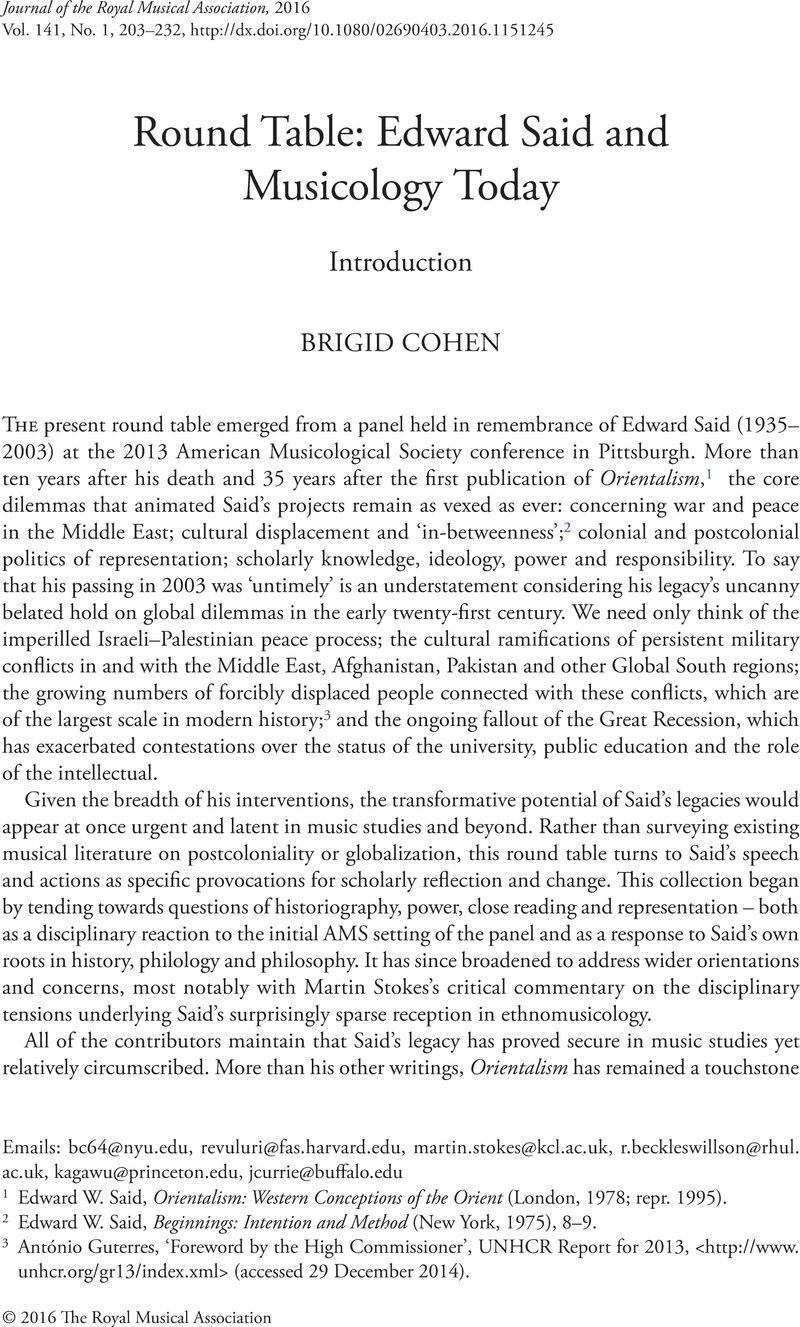
1 Edward W. Said, Orientalism: Western Conceptions of the Orient (London, 1978; repr. 1995).
2 Edward W. Said, Beginnings: Intention and Method (New York, 1975), 8–9.
3 António Guterres, ‘Foreword by the High Commissioner’, UNHCR Report for 2013, <http://www.unhcr.org/gr13/index.xml> (accessed 29 December 2014).
4 At the April 2013 Edward Said Memorial Conference in Utrecht, Paul Gilroy compared Said to Du Bois, arguing that they shared a humanistic impulse not defined by universal abstract rhetoric, but bearing the negative imprint of racist and colonial systems of power. This argument relates to Houston Baker, Jr's identification of Du Bois's ‘deformation of mastery’, a representational strategy that masters elements of an ‘obscene situation’ by appropriating and transforming them into a ‘signal self/cultural expression, [refusing] a master's nonsense’. Houston A. Baker, Jr, Modernism and the Harlem Renaissance (Chicago, IL, 1986), 56.